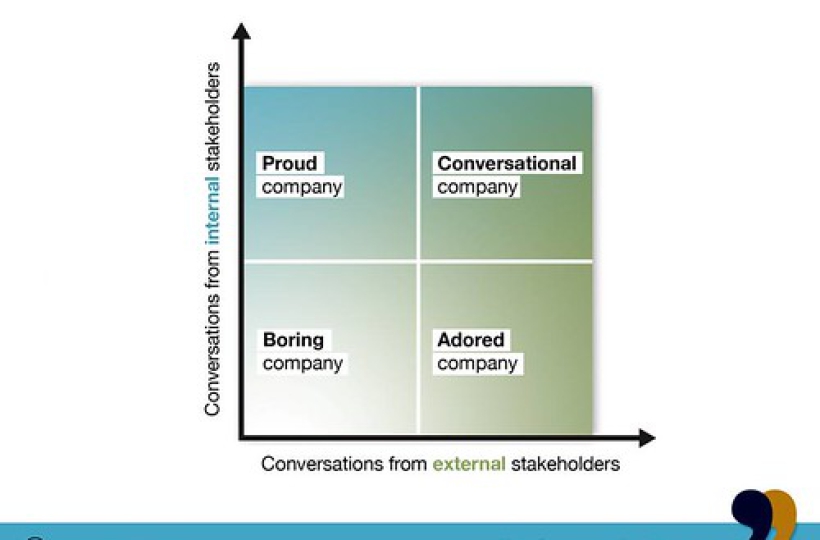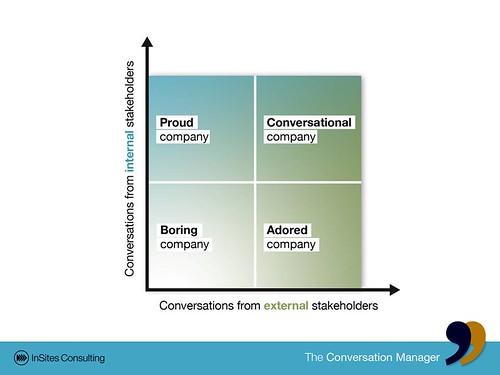Employees are under-used conversation potential


People are proud but are not allowed to talk
InSites Consulting‘s ‘Social Media around the World’ survey shows that two out of three people are proud of their job. Most people also like to talk about their job, and frequently. Social media are an ideal platform to tell your friends about your daily life. Unfortunately many companies have decided that their employees are not allowed to talk on social media about their job, thus blocking out an important conversation stream. In Europe and the US less than 20% of employees talk about their company on social media, although half of the employees would like to share information on new products with their network. This is a huge part of under-used conversation potential.
One in three has no social media access at work

When employees talk, it is extremely complementary to customers talking
Internal (originating from the employee) and external (originating from the customer) conversations are very complementary. Your employees make your culture tangible. Everything they say and do shows what your company represents. Customers tell about their experiences with your company and products. Both sources of conversation influence public opinion and thus your company’s results.
In the meantime companies have become increasingly aware of the customer’s conversations. The role of their own employees is still highly underestimated. It is surprising that some marketers of large food companies are not allowed to share their own ad spots on their personal Facebook page. This is yet another one of those under-used sources of conversation potential.
Avoid chaos and guide employees to optimise the conversation potential

I can see 3 levels to facilitate employees:
- Trust: Employees sometimes are not certain about what is permitted and not permitted by the employer. In spite of their positive intentions they do nothing, for safety’s sake. By giving clear guidelines and especially the necessary training you offer a sufficient level of comfort to employees to engage in online
conversations without fear. A mere 13% of European employees have so far been trained on social media behaviour. Kodak strongly believes in the power of its own employee’s conversations. The company counts several hundred active bloggers. These people are facilitated by their ‘chief blogging officer’. This lady coordinates all content. She ensures that their stories are in line with the company culture and objectives. Its employees are encouraged to blog. Kodak organises training sessions. It gives tips & tricks on interesting content for a new blog. That is how it is turned into a blog programme with a vision and an objective.
- Content: what to talk about, how to converse, how to react to criticism… If you guide your employees, your company is better prepared to use employees as spokespeople. That is how you create a comfort zone for employees to speak freely.
- Tools: Provide the right software and hardware so that employees can participate in conversations. Certain companies are prepared to provide employees with the necessary hardware, for example. If someone can show that an iPad is important for his/her communication with customers, they are provided with an iPad.
What are your thoughts on the subject? What actions could an employer undertake to help his employees to deal with social media in an impactful and correct way? I am looking forward to your reactions!
Should you wish to consult all the survey’s details, this presentation will give you all the facts, figures and research results.
[slideshare id=9249498&doc=socialmediaaroundtheworld2011-110914000406-phpapp01]

